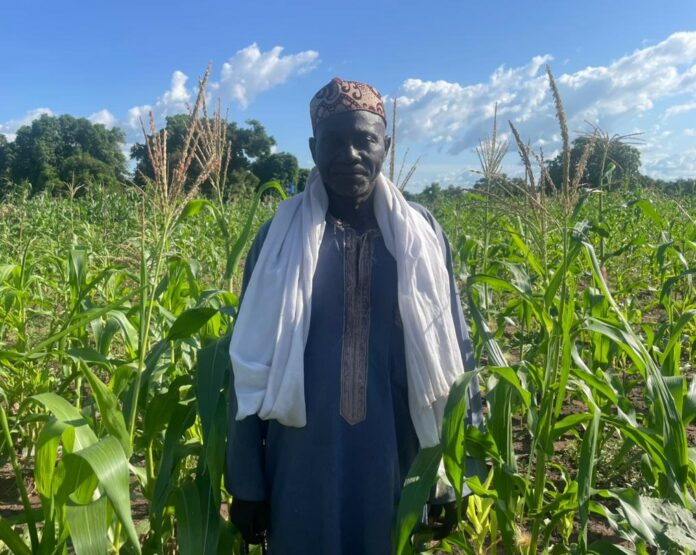By: Dawda Baldeh
As the rainy season reaches its peak and farmers anticipate a bumper harvest, the price of groundnuts is expected to rise. The Fatu Network spoke with farmers to understand how last year’s marketing season impacted them.
In this edition, we interviewed several farmers, including a secco worker in Gambi Sara, in the country’s Upper River Region (URR), who expressed dissatisfaction with last year’s season.
Musa Jobarteh, a resident of Gambi Sara, seasoned farmer, and secco worker, revealed that the way the government managed the groundnut season negatively affected many farmers.
During last year’s groundnut marketing season, the government increased the price of groundnuts and prohibited farmers from selling their nuts to external buyers.
While this was initially welcomed, it later became a nightmare for many who regretted sending their nuts to the seccos.
According to Musa, the government was unable to purchase all the groundnuts, putting farmers at a disadvantage.
“The delay was too long, and many farmers became frustrated. Some farmers retrieved their groundnuts from the secco, but were unable to sell them by the end of the season,” he said.
Speaking on the outskirts of Basse, a farmer who wished to remain anonymous said, “I will not sell my groundnuts to the government this year. Last year, we were deceived and ended up selling our groundnuts at a loss.”
This farmer, who also expects a bumper harvest this season, urged the government to prioritize the interests of farmers.
“If the government knows they can’t buy all the nuts or don’t have enough money to pay farmers on time, they should allow farmers to sell their groundnuts to whoever they choose,” said Sulayman Ceesay, a farmer in CRR South.
Many farmers recounted the challenges they faced in receiving payments from the government last year.
“The government should support farmers because we are the backbone of the country,” said Alieu Jamanka, a farmer in Jimara.
Mr. Jamanka also expressed hope for a successful harvest this year and called on the government to put proper measures in place to avoid a repeat of last year’s groundnut marketing season, where farmers struggled to get paid.
“Since the groundnut season ended, some farmers are still struggling to sell their groundnuts, and that has caused huge losses,” Mr. Jobarteh added.
He revealed that some farmers still have unsold groundnuts at home.
“They stopped the Senegalese from buying our groundnuts, but they couldn’t buy all the groundnuts themselves. This left many farmers at a disadvantage,” he explained.
Mr. Jobarteh added that some people in his neighborhood continue to approach him about their groundnuts. He recalled feeling ashamed to go out during the season because of the pressure he faced.
“Wherever I went, people kept asking me about their money. This was a difficult time for me and many others,” he lamented.
With farmers expecting another strong harvest, Jobarteh urged the government to ensure there is enough money to buy the groundnuts if they don’t want farmers to sell them to the Senegalese.
“You can’t stop farmers from selling their groundnuts to outsiders when you don’t have the money to buy all their nuts. Farmers shouldn’t have to wait or struggle to get paid because farming is very difficult, and it’s their only source of income,” he emphasized.
Farmers are calling on the government to make better preparations for this year’s season to avoid the frustration many endured last year.




